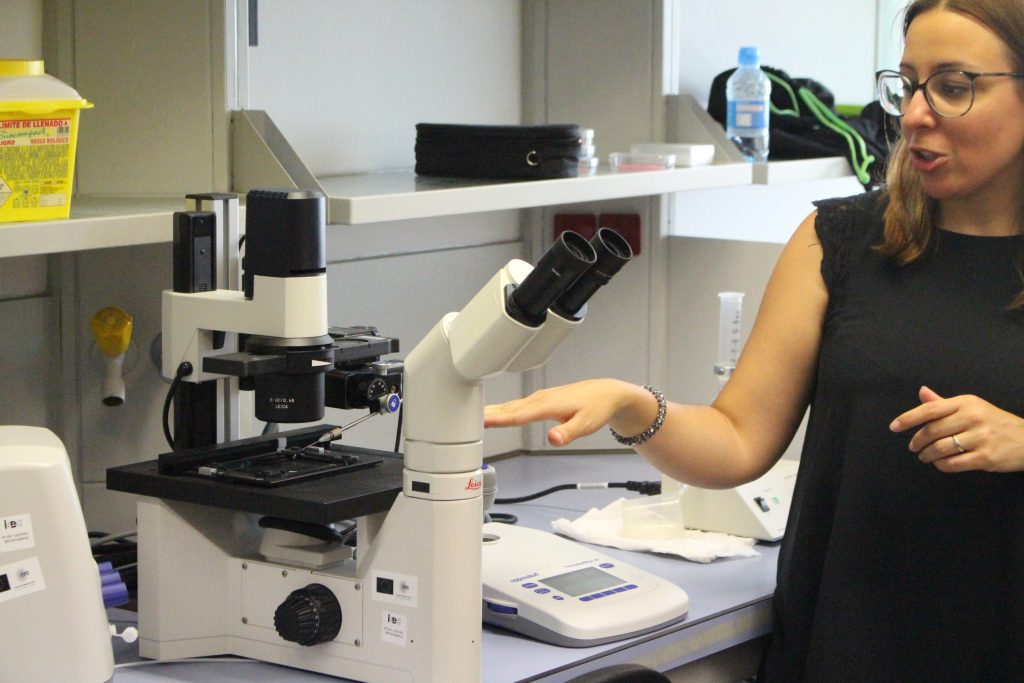
On June 28 at the PRBB facility, fourteen enthusiastic secondary school teachers from Castilla-La Mancha, Valencia, Andalusia, Aragon and Catalonia participated in the latest conference on knowledge generation, genomics and sequencing, “Teach and Fly”; organized by the Evolutionary and Functional Genomics laboratory (González Lab) of the Institute of Evolutionary Biology, CSIC-UPF (IBE), and La Ciència Al Teu Món. The objective of the course was to provide these teachers with training in genomics, sequencing and editing techniques, such as CRISPR; and above all, to encourage them to get involved in the citizen science project ‘Melanogaster: catch the fly!’ (#MelanogasterCTF). In this project, researchers, communicators, teachers, high school students and the community work hand in hand to discover how organisms adapt to different environments, using Drosophila melanogaster (fruit fly) as a model organism.

The project started in 2016. Since then, 60 students from Granada and Ciudad Real have participated in collecting and classifying fruit flies and sending them to the IBE for sequencing. “We hope that the Teach and Fly course will allow us to extend the network of secondary schools involved in the project and, therefore, the sampling points”, says the coordinator of #MelanogasterCTF, Dr. Josefa González.

High school students sample fruit trees far from urban centers, using entomological vacuum devices to catch the flies that they go on to classify in their high schools’ laboratories. “Sampling is no longer a limiting factor. Thanks to their work, we now have samples from more places than we would have ever had if we had done the sampling ourselves”, says Dr. González, Principal Investigator of González Lab (IBE). “Furthermore, by involving schools and citizens in our research, we publicize the cutting-edge scientific research carried out in our country,” she adds.

The genomic sequences of these fruit flies are shared in an international database. Therefore, the data obtained from this project benefits all the laboratories within the European Drosophila Population Genomics Consortium (DrosEU), and the entire scientific community. As a result of this collaborative work, six viruses that affect the fruit fly have been newly identified; one of which was found in Ciudad Real: the “Tomelloso virus”.

The “Teach and Fly!” course and the #MelanogasterCTF citizen science project are funded by the Spanish Foundation for Science and Technology (FECYT) and the European Research Council (ERC).

Survival within changing environments and resistance to antibiotics and chemotherapy can be explained by adaptation, a key process in evolutionary biology that remains poorly understood. “Since Spain is the only European continental region with arid zones, the data collected by #MelanogasterCTF will be of great relevance in studying how organisms adapt to climate change,” says Dr. González.



